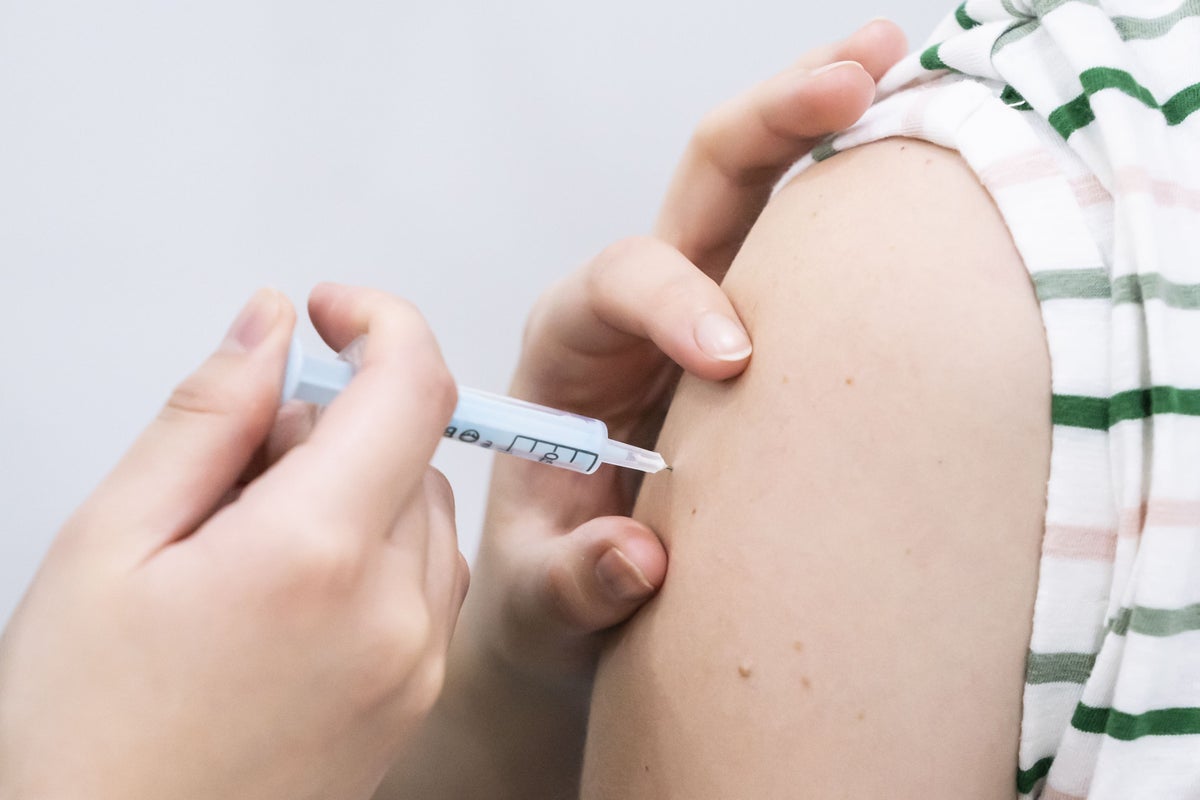
The UK is “way behind” the goal of stopping a pandemic with a new vaccine within 100 days and more investment in research and development is needed, Professor Sir Andrew Pollard has said.
He spoke as the UK Health and Security Agency (UKHSA) unveiled its Vaccine Development and Evaluation Centre (VDEC) at the Porton Down science and defence technology campus in Wiltshire.
Some 200 scientists will study pathogens with pandemic potential and test new and existing vaccines on diseases.
It is hoped the facility will contribute to the 100 days mission, a global goal set by the G7 in 2021 with the aim of deploying a vaccine against any new pandemic threat within 100 days of identification.
However, speaking to Sky News, Sir Andrew, chairman of the Joint Committee on Vaccination and Immunisation, called the goal “a really tall order” that is “going to need a lot of investment to do the research”.
He said: “Here, at the Pandemic Sciences Centre in Oxford, we’re working on many different diseases which could potentially threaten human populations in the future.
“We’re learning a lot about what the rules are that allow us to rapidly develop new vaccines and we will work in collaboration with the UKHSA and their new pandemic vaccine centre.
If you look at Covid, it was 300 days to develop a vaccine. The Government want us to be down at 100 days, and that's a really tall order. It's going to need a lot of investment to do the research that brings us to that point— Professor Sir Andrew Pollard, JCVI
“One of the things that’s perhaps good news here is that science is really advancing very fast.
“But at the moment, if you look at Covid, it was 300 days to develop a vaccine. The Government want us to be down at 100 days, and that’s a really tall order. It’s going to need a lot of investment to do the research that brings us to that point.”
Asked if the 100 days mission is feasible, Sir Andrew said “20 years of homework” on coronaviruses before the outbreak of Covid-19 had speeded up the development of vaccines for the virus.
“We need, at the very least, to be doing that same amount of research and development around other threats – microbial threats – so that, if it was some other virus, we’re just as prepared as we were with coronavirus.
“But that’s just to get you to 300 days. To get down to 100 days means that development has to go a lot further before a pandemic than what happened with Covid-19.
“And I think with investment you could do that. But we’re way behind a point where we’d be ready for that tomorrow.”
The launch of VDEC comes after the UK’s preparedness for a pandemic was scrutinised in the first public hearings of the Covid-19 Inquiry earlier this summer.
The probe found past governments had focused too much on preparing for influenza rather than studying other bacteria or viruses.
It is hoped VDEC will allow the UK to better prepare for emerging threats, including “Disease X”, a yet-to-be identified pathogen that scientists warn will cause the next pandemic.
UKHSA chief executive Dame Jenny Harries said the term is used as scientists “don’t know what the next pathogen will be that will cause a pandemic”.
Sir Andrew told Sky News there will probably be future pandemics due to factors including climate change.
“Of course, it’s impossible to say exactly when that might happen, but the circumstances that we see in front of us make it very likely.
“For example, we know that climate change drives the emergence of new bacteria and viruses into our environment. And we also have urbanisation. As a result of humans moving more into animal habitats, we increase the risk of that happening.
“As we seen with Covid-19, people crowded together make spread much more likely. We’re currently at about eight billion people on the planet. And over the next 30 years or so we’re going to move to more than 10 billion.
“That does mean that, over the course of the years ahead, it becomes actually increasingly likely there’ll be further pandemics during this century.”







